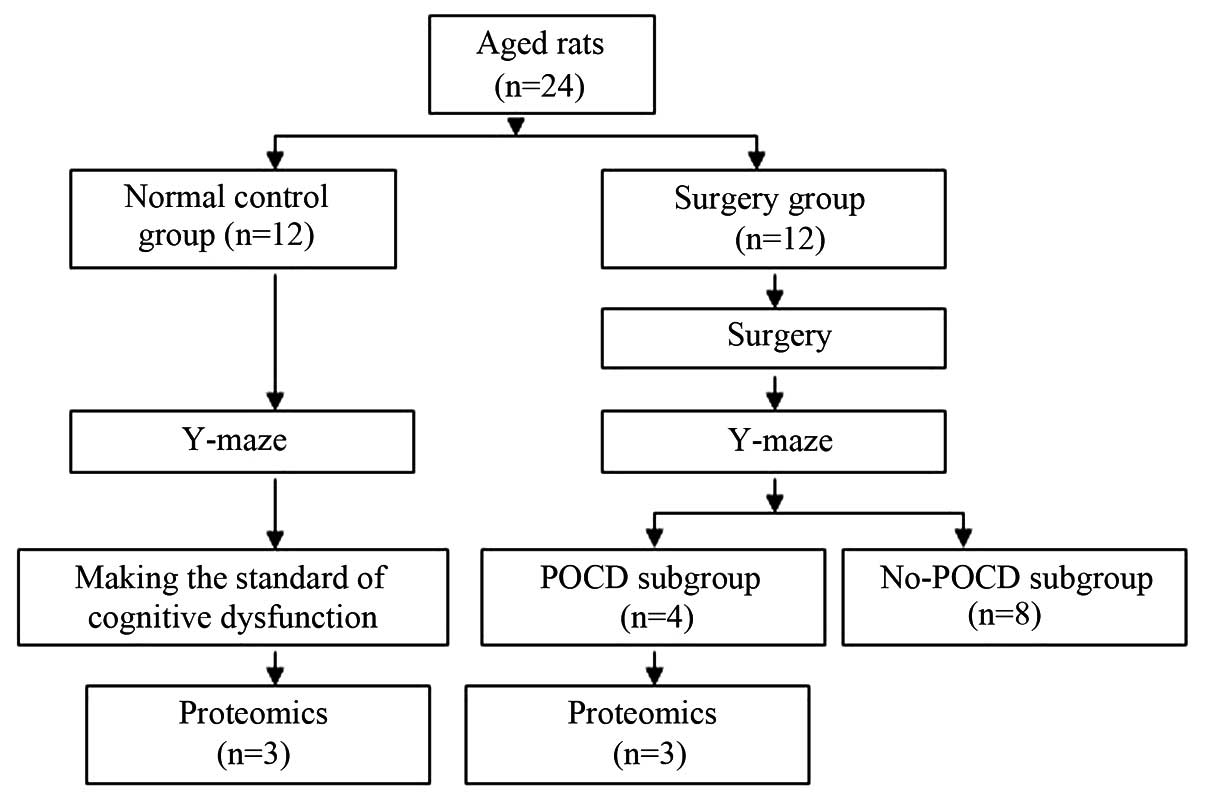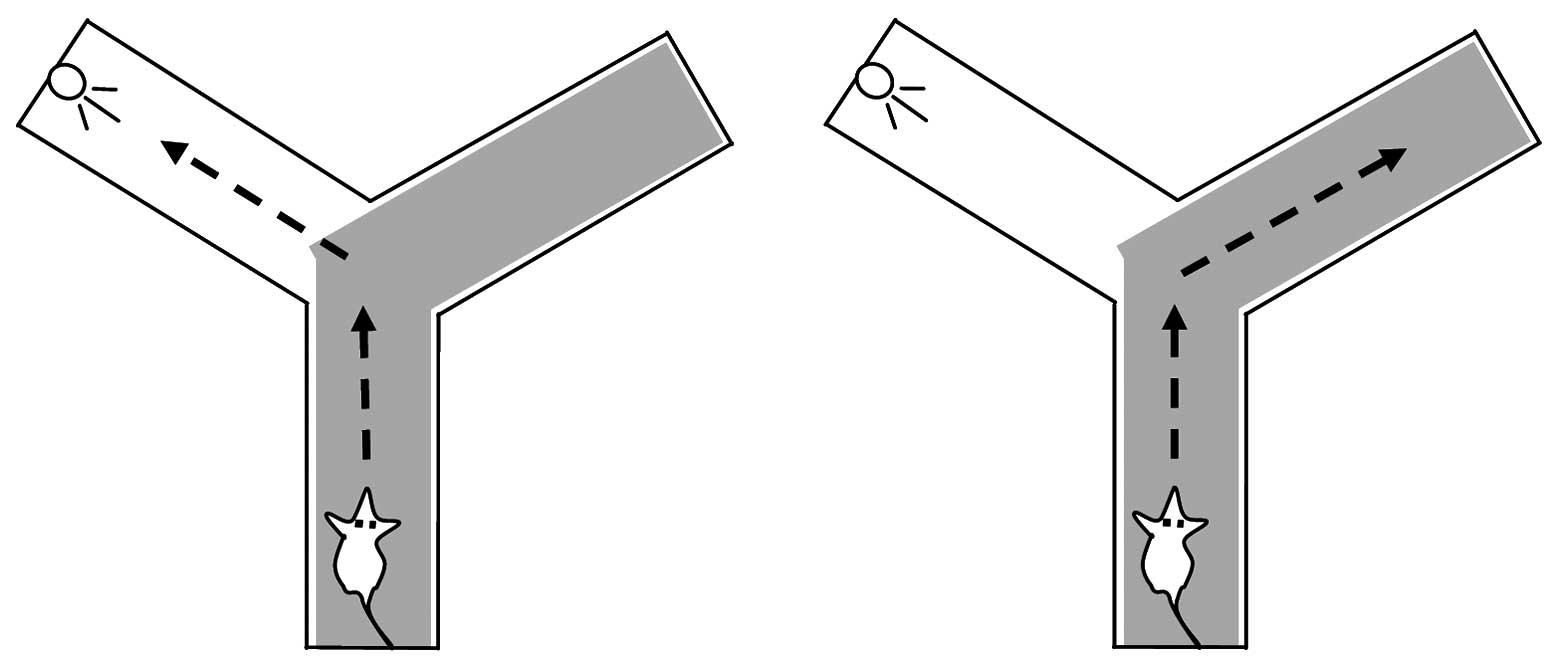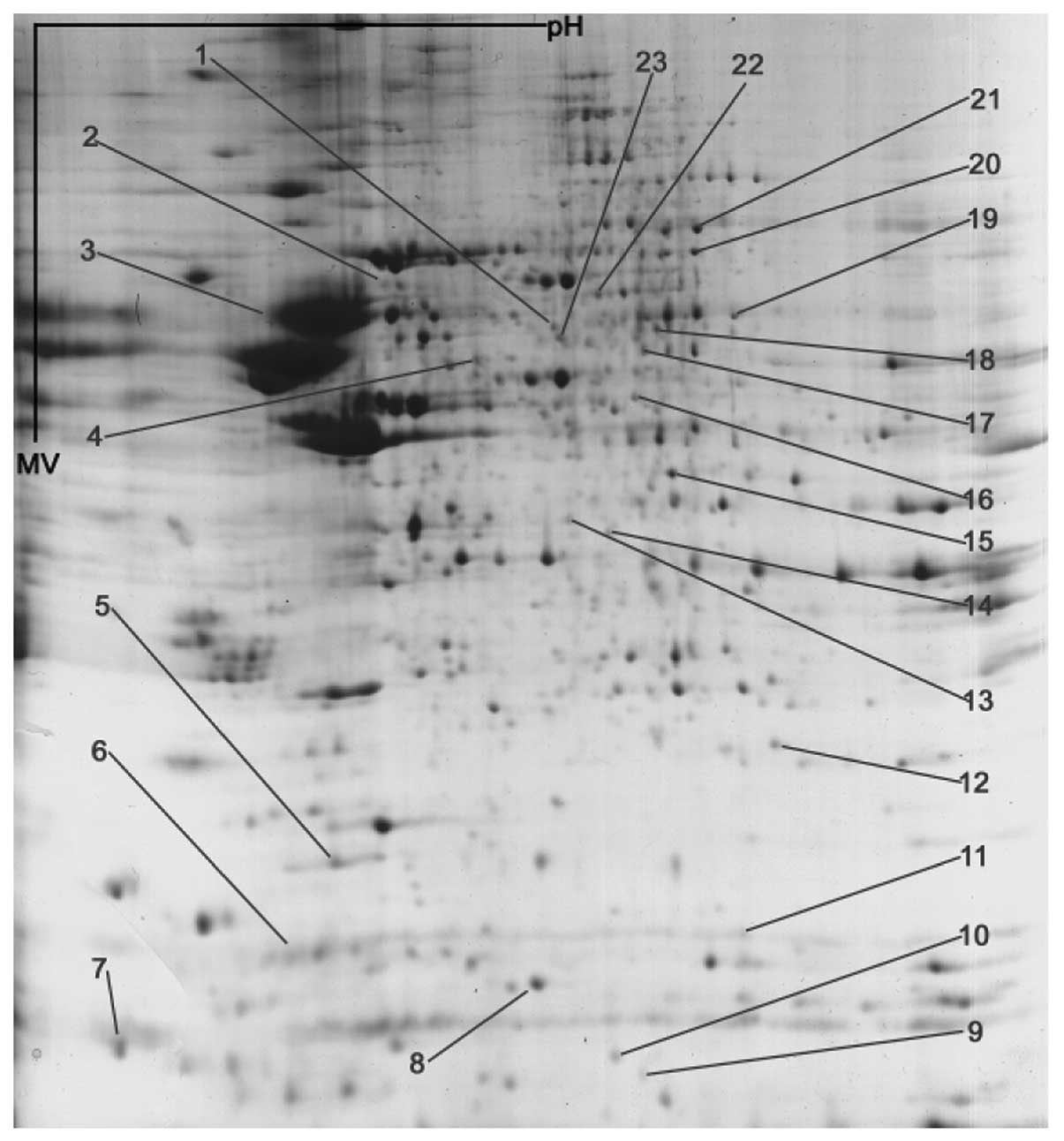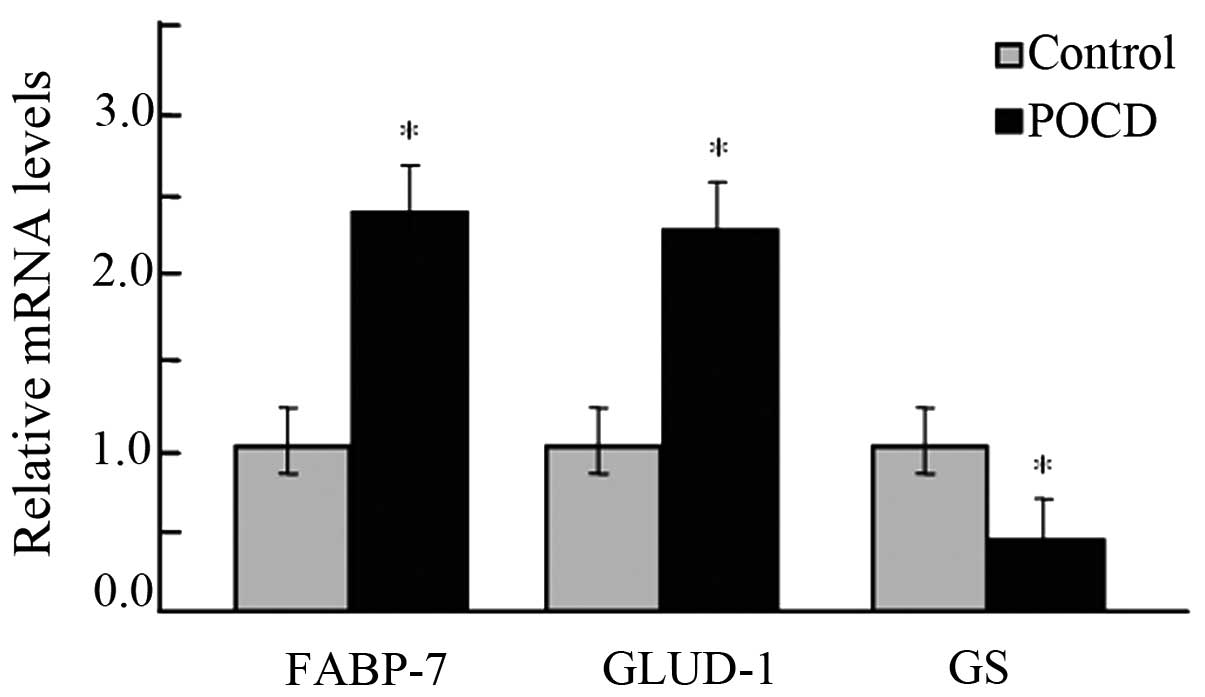|
1
|
Yan XB, Ouyang W, Li G and Duan KM:
Involvement of neuronal nitric oxide synthase in cognitive
impairment in isoflurane-treated rats. Neurosci Lett. 506:240–244.
2012. View Article : Google Scholar
|
|
2
|
Ramaiah R and Lam AM: Postoperative
cognitive dysfunction in the elderly. Anesthesiol Clin. 27:485–496.
2009. View Article : Google Scholar : PubMed/NCBI
|
|
3
|
Monk TG and Price CC: Postoperative
cognitive disorders. Curr Opin Crit Care. 17:376–381. 2011.
View Article : Google Scholar : PubMed/NCBI
|
|
4
|
Terrando N, Monaco C, Ma D, Foxwell BM,
Feldmann M and Maze M: Tumor necrosis factor-alpha triggers a
cytokine cascade yielding postoperative cognitive decline. Proc
Natl Acad Sci USA. 107:20518–20522. 2012. View Article : Google Scholar
|
|
5
|
Rosczyk HA, Sparkman NL and Johnson RW:
Neuroinflammation and cognitive function in aged mice following
minor surgery. Exp Gerontol. 43:840–846. 2008. View Article : Google Scholar : PubMed/NCBI
|
|
6
|
Culley DJ, Baxter MG, Yukhananov R and
Crosby G: Long-term impairment of acquisition of a spatial memory
task following isoflurane-nitrous oxide anesthesia in rats.
Anesthesiology. 100:309–314. 2004. View Article : Google Scholar : PubMed/NCBI
|
|
7
|
Culley DJ, Baxter M, Yukhananov R and
Crosby G, Culley DJ, Baxter M, Yukhananov R and Crosby G: The
memory effects of general anesthesia persist for weeks in young and
aged rats. Anesth Analg. 96:1004–1009. 2003. View Article : Google Scholar : PubMed/NCBI
|
|
8
|
Culley DJ, Baxter MG, Crosby CA,
Yukhananov R and Crosby G: Impaired acquisition of spatial memory 2
weeks after isoflurane and isoflurane-nitrous oxide anesthesia in
aged rats. Anesth Analg. 99:1393–1397. 2004. View Article : Google Scholar : PubMed/NCBI
|
|
9
|
Hudson AE and Hemmings HC Jr: Are
anaesthetics toxic to the brain? Br J Anaesth. 107:30–37. 2011.
View Article : Google Scholar : PubMed/NCBI
|
|
10
|
Rasmussen LS, Johnson T, Kuipers HM,
Kristensen D, Siersma VD, Vila P, Jolles J, Papaioannou A,
Abildstrom H, Silverstein JH, Bonal JA, Raeder J, Nielsen IK,
Korttila K, Munoz L, Dodds C, Hanning CD and Moller JT: ISPOCD2
(international study of postoperative cognitive dysfunction)
investigators: does anaesthesia cause postoperative cognitive
dysfunction? A randomised study of regional versus general
anaesthesia in 438 elderly patients. Acta Anaesthesiol Scand.
47:260–266. 2003. View Article : Google Scholar : PubMed/NCBI
|
|
11
|
He HJ, Wang Y, Le Y, Duan KM, Yan XB, Liao
Q, Liao Y, Tong JB, Terrando N and Ouyang W: Surgery upregulates
high mobility group box-1 and disrupts the blood-brain barrier
causing cognitive dysfunction in aged rats. CNS Neurosci Ther.
18:994–1002. 2012. View Article : Google Scholar : PubMed/NCBI
|
|
12
|
Wang Y, He HJ, Li D, Zhu WJ, Duan KM, Le
Y, Liao Y and Ouyang W: The role of the TLR4 signaling pathway in
cognitive deficits following surgery in aged rats. Mol Med Rep.
7:1137–1142. 2013.PubMed/NCBI
|
|
13
|
Terrando N, Eriksson LI, Ryu JK, Yang T,
Monaco C, Feldmann M, Jonsson Fagerlund M, Charo IF, Akassoglou K
and Maze M: Resolving postoperative neuroinflammation and cognitive
decline. Ann Neurol. 70:986–995. 2011. View Article : Google Scholar : PubMed/NCBI
|
|
14
|
Evered L, Scott DA, Silbert B and Maruff
P: Postoperative cognitive dysfunction is independent of type of
surgery and anesthetic. Anesth Analg. 112:1179–1185. 2011.
View Article : Google Scholar : PubMed/NCBI
|
|
15
|
Bi FF, Huang C, Tong JB, Qiu G, Huang B,
Wu Qx, Li F, Xu ZS, Xia XG and Zhou HX: Reactive astrocytes secrete
Lcn2 to assist neurons in degeneration. Proc Natl Acad Sci USA.
110:4069–4074. 2013. View Article : Google Scholar
|
|
16
|
Dede AJ, Wixted JT, Hopkins RO and Squire
LR: Hippocampal damage impairs recognition memory broadly,
affecting both parameters in two prominent models of memory. Proc
Natl Acad Sci USA. 1:6577–6582. 2013. View Article : Google Scholar
|
|
17
|
Da Silva WC, Cardoso G, Bonini JS, Benetti
F and Izquierdo I: Memory reconsolidation and its maintenance
depend on L-voltage-dependent calcium channels and CaMKII functions
regulating protein turnover in the hippocampus. Proc Natl Acad Sci
USA. 110:6566–6570. 2013. View Article : Google Scholar : PubMed/NCBI
|
|
18
|
Buckner RL: Memory and executive function
in aging and AD: multiple factors that cause decline and reserve
factors that compensate. Neuron. 44:195–208. 2004. View Article : Google Scholar : PubMed/NCBI
|
|
19
|
Jagust W: Vulnerable neural systems and
the borderland of brain aging and neurodegeneration. Neuron.
77:219–234. 2013. View Article : Google Scholar : PubMed/NCBI
|
|
20
|
Chen MH, Liao Y, Rong PF, Hu R, Lin GX and
Ouyang W: Hippocampal volume reduction in elderly patients at risk
for postoperative cognitive dysfunction. J Anesth. 27:487–492.
2013. View Article : Google Scholar : PubMed/NCBI
|
|
21
|
Chen SQ, Wang PJ, Ten GJ, Zhan W, Li MH
and Zang FC: Role of myo-inositol by magnetic resonance
spectroscopy in early diagnosis of Alzheimer’s disease in APP/PS1
transgenic mice. Dement Geriatr Cogn Disord. 28:558–566. 2009.
View Article : Google Scholar
|
|
22
|
Covasala O, Stirn SL, Albrecht S, De Col R
and Messlinger K: Calcitonin gene-related peptide receptors in rat
trigeminal ganglion do not control spinal trigeminal activity. J
Neurophysiol. 108:431–440. 2012. View Article : Google Scholar : PubMed/NCBI
|
|
23
|
Krauspe R and Scheer A: Coomassie
brilliant blue G-250 dye-binding technique for determination of
autolytic protein breakdown in Euglena gracilis and comparison to
other methods of autolysis measurement. Anal Biochem. 153:242–250.
1986. View Article : Google Scholar : PubMed/NCBI
|
|
24
|
Oguri T, Takahata I, Katsuta K, Nomura E,
Hidaka M and Inagaki N: Proteome analysis of rat hippocampal
neurons by multiple large gel two-dimensional electrophoresis.
Proteomics. 2:666–672. 2002. View Article : Google Scholar : PubMed/NCBI
|
|
25
|
Fountoulakis M and Gasser R: Proteomic
analysis of the cell envelope fraction of Escherichia coli. Amino
Acids. 24:19–41. 2003.PubMed/NCBI
|
|
26
|
Opii WO, Joshi G, Head E, Milgram NW,
Muggenburg BA, Klein JB, Pierce WM, Cotman CW and Butterfield DA:
Proteomic identification of brain proteins in the canine model of
human aging following a long-term treatment with antioxidants and a
program of behavioral enrichment: relevance to Alzheimer’s disease.
Neurobiol Aging. 29:51–70. 2008. View Article : Google Scholar
|
|
27
|
Berndt P, Hobohm U and Langen H: Reliable
automatic protein identification from matrix-assisted laser
desorption/ionization mass spectrometric peptide fingerprints.
Electrophoresis. 20:3521–3526. 1999. View Article : Google Scholar : PubMed/NCBI
|
|
28
|
Nikolov M, Schmidt C and Urlaub H:
Quantitative mass spectrometry-based proteomics. Methods Mol Biol.
893:85–100. 2012.
|
|
29
|
Nagappan A, Park HS, Park KI, Kim JA, Hong
GE, Kang SR, Zhang J, Kim EH, Lee WS, Won CK and Kim GS: Proteomic
analysis of differentially expressed proteins in vitamin C-treated
AGS cells. BMC Biochem. 14:242013. View Article : Google Scholar : PubMed/NCBI
|
|
30
|
Nolan T, Hands RE and Bustin SA:
Quantification of mRNA using real-time RT-PCR. Nat Protoc.
1:1559–1582. 2006. View Article : Google Scholar
|
|
31
|
Livak KJ and Schmittgen TD: Analysis of
relative gene expression data using real-time quantitative PCR and
the 2 (-Delta Delta C(T)). Methods. 25:402–408. 2001. View Article : Google Scholar
|
|
32
|
Kipp M, Clarner T, Gingele S, Pott F, Amor
S, van der Valk P and Beyer C: Brain lipid binding protein (FABP7)
as modulator of astrocyte function. Physiol Res. 60(Suppl 1):
49–60. 2011.
|
|
33
|
Aubrecht J and Schomaker S: Serum
glutamate dehydrogenase as a potential biomarker of mitochondrial
dysfunction. Toxicol Sci. 134:2232013. View Article : Google Scholar : PubMed/NCBI
|
|
34
|
Butterfield DA, Hensley K, Cole P, et al:
Oxidatively induced structural alteration of glutamine synthetase
assessed by analysis of spin label incorporation kinetics:
relevance to Alzheimer’s disease. J Neurochem. 68:2451–2457. 1997.
View Article : Google Scholar : PubMed/NCBI
|
|
35
|
Bedford PD: Adverse cerebral effects of
anaesthesia on old people. Lancet. 269:259–263. 1955. View Article : Google Scholar : PubMed/NCBI
|
|
36
|
Mallozzi C, D’Amore C, Camerini S, Macchia
G, Crescenzi M, Petrucci TC and Di Stasi AM: Phosphorylation and
nitration of tyrosine residues affect functional properties of
Synaptophysin and Dynamin I, two proteins involved in
exo-endocytosis of synaptic vesicles. Biochim Biophys Acta.
1833:110–121. 2013. View Article : Google Scholar
|
|
37
|
Merriam LA, Baran CN, Girard BM, Hardwick
JC, May V and Parsons RL: Pituitary adenylate cyclase 1 receptor
internalization and endosomal signaling mediate the pituitary
adenylate cyclase activating polypeptide-induced increase in guinea
pig cardiac neuron excitability. J Neurosci. 33:4614–4422. 2013.
View Article : Google Scholar : PubMed/NCBI
|
|
38
|
Yamada H, Abe T, Satoh A, Okazaki N, Tago
S, Kobayashi K, Yoshida Y, Oda Y, Watanabe M, Tomizawa K, Matsui H
and Takei K: Stabilization of actin bundles by a dynamin
1/cortactin ring complex is necessary for growth cone filopodia. J
Neurosci. 33:4514–4526. 2013. View Article : Google Scholar : PubMed/NCBI
|
|
39
|
Koide T, Aleksic B, Ito Y, Usui H, Yoshimi
A, Inada T, Suzuki M, Hashimoto R, Takeda M, Iwata N and Ozaki N: A
two-stage case-control association study of the
dihydropyrimidinase-like 2 gene (DPYSL2) with schizophrenia in
Japanese subjects. J Hum Genet. 55:469–472. 2010. View Article : Google Scholar : PubMed/NCBI
|
|
40
|
Wang QP, Jammoul F, Duboc A, Gong J,
Simonutti M, Dubus E, Craft CM, Ye W, Sahel JA and Picaud S:
Treatment of epilepsy: the GABA-transaminase inhibitor, vigabatrin,
induces neuronal plasticity in the mouse retina. Eur J Neurosci.
27:2177–2187. 2008. View Article : Google Scholar : PubMed/NCBI
|
|
41
|
Hwang IK, Kim DW, Yoo KY, Kim DS, Kim KS,
Kang JH, Choi SY, Kim YS, Kang TC and Won MH: Age-related changes
of gamma-aminobutyric acid transaminase immunoreactivity in the
hippocampus and dentate gyrus of the Mongolian gerbil. Brain Res.
1017:77–84. 2004. View Article : Google Scholar : PubMed/NCBI
|
|
42
|
Wootz H, Fitzsimons-Kantamneni E,
Larhammar M, Rotterman TM, Enjin A, Patra K, André E, Van Zundert
B, Kullander K and Alvarez FJ: Alterations in the motor
neuron-renshaw cell circuit in the Sod1 (G93A) mouse model. J Comp
Neurol. 521:1449–1469. 2013. View Article : Google Scholar : PubMed/NCBI
|
|
43
|
Kang SH, Li Y, Fukaya M, Lorenzini I,
Cleveland DW, Ostrow LW, Rothstein JD and Bergles DE: Degeneration
and impaired regeneration of gray matter oligodendrocytes in
amyotrophic lateral sclerosis. Nat Neurosci. 16:571–579. 2013.
View Article : Google Scholar : PubMed/NCBI
|
|
44
|
Castro-Caldas M, Carvalho AN, Rodrigues E,
Henderson C, Wolf CR and Gama MJ: Glutathione S-transferase pi
mediates MPTP-induced c-Jun N-terminal kinase activation in the
nigrostriatal pathway. Mol Neurobiol. 45:466–477. 2012. View Article : Google Scholar : PubMed/NCBI
|
|
45
|
Korff A, Pfeiffer B, Smeyne M, Kocak M,
Pfeiffer RF and Smeyne RJ: Alterations in glutathione S-transferase
pi expression following exposure to MPP+ -induced
oxidative stress in the blood of Parkinson’s disease patients.
Parkinsonism Relat Disord. 17:765–768. 2011. View Article : Google Scholar : PubMed/NCBI
|
|
46
|
Sánchez-Font MF, Sebastià J, Sanfeliu C,
Cristòfol R, Marfany G and Gonzàlez-Duarte R: Peroxiredoxin 2
(PRDX2), an antioxidant enzyme, is under-expressed in Down syndrome
fetal brains. Cell Mol Life Sci. 60:1513–1523. 2003. View Article : Google Scholar : PubMed/NCBI
|
|
47
|
Tang WH, Martin KA and Hwa J: Aldose
reductase, oxidative stress and diabetic mellitus. Front Pharmacol.
3:872012. View Article : Google Scholar
|
|
48
|
Takase C, Nakano K, Ohta S, Nakagawa S and
Matuda SY: Different distribution of dihydrolipoamide
succinyltransferase, dihydrolipoamide acetyltransferase and ATP
synthase beta-subunit in monkey brain. In Vivo. 10:495–501.
1996.PubMed/NCBI
|
|
49
|
Ko YH, Pan W, Inoue C and Pedersen PL:
Signal transduction to mitochondrial ATP synthase: evidence that
PDGF-dependent phosphorylation of the delta-subunit occurs in
several cell lines, involves tyrosine and is modulated by
lysophosphatidic acid. Mitochondrion. 1:339–348. 2002. View Article : Google Scholar
|
|
50
|
Adam-Vizi V and Tretter L: The role of
mitochondrial dehydrogenases in the generation of oxidative stress.
Neurochem Int. 62:757–763. 2013. View Article : Google Scholar : PubMed/NCBI
|
|
51
|
Batke J, Nazaryan KB and Karapetian NH:
Complex of brain D-phosphoglycerate mutase and gamma enolase and
its reactivation by D-glycerate 2,3-bisphosphate. Arch Biochem
Biophys. 264:510–518. 1988. View Article : Google Scholar : PubMed/NCBI
|
|
52
|
Zhao Y, Pan X, Zhao J, Wang Y, Peng Y and
Zhong C: Decreased transketolase activity contributes to impaired
hippocampal neurogenesis induced by thiamine deficiency. J
Neurochem. 111:537–546. 2009. View Article : Google Scholar : PubMed/NCBI
|
|
53
|
Tolle SW, Dyson RD, Newburgh RW and
Cardenas JM: Pyruvate kinase isozymes in neurons, glia,
neuroblastoma and glioblastoma. J Neurochem. 27:1355–1360. 1976.
View Article : Google Scholar : PubMed/NCBI
|
|
54
|
Ahmed Z, Shaw G, Sharma VP, Yang C,
McGowan E and Dickson DW: Actin-binding proteins coronin-1a and
IBA-1 are effective microglial markers for immunohistochemistry. J
Histochem Cytochem. 55:687–700. 2007. View Article : Google Scholar : PubMed/NCBI
|
|
55
|
Zaheer A, Zaheer S, Sahu SK, Knight S,
Khosravi H, Mathur SN and Lim R: A novel role of glia maturation
factor: induction of granulocyte-macrophage colony-stimulating
factor and pro-inflammatory cytokines. J Neurochem. 101:364–376.
2007. View Article : Google Scholar : PubMed/NCBI
|
|
56
|
Shao W, Zhang SZ, Tang M, Zhang XH, Zhou
Z, Yin YQ, Zhou QB, Huang YY, Liu YJ, Wawrousek E, Chen T, Li SB,
Xu M, Zhou JN, Hu G and Zhou JW: Suppression of neuroinflammation
by astrocytic dopamine D2 receptors via αB-crystallin. Nature.
494:90–94. 2013. View Article : Google Scholar
|
|
57
|
An LN, Yue Y, Guo WZ, Miao YL, Mi WD,
Zhang H, Lei ZL, Han SJ and Dong L: Surgical trauma induces iron
accumulation and oxidative stress in a rodent model of
postoperative cognitive dysfunction. Biol Trace Elem Res.
151:277–283. 2013. View Article : Google Scholar
|
|
58
|
Cooper AJ: Possible treatment of end-stage
hyperammonemic encephalopathy by inhibition of glutamine
synthetase. Metab Brain Dis. 28:119–125. 2013. View Article : Google Scholar
|
|
59
|
Plaitakis A, Zaganas I and Spanaki C:
Deregulation of glutamate dehydrogenase in human neurologic
disorders. J Neurosci Res. 91:1007–1017. 2013. View Article : Google Scholar : PubMed/NCBI
|
|
60
|
Frigerio F, Karaca M, De Roo M, Mlynárik
V, Skytt DM, Carobbio S, Pajęcka K, Waagepetersen HS, Gruetter R,
Muller D and Maechler P: Deletion of glutamate dehydrogenase 1
(Glud1) in the central nervous system affects glutamate handling
without altering synaptic transmission. J Neurochem. 123:342–348.
2012. View Article : Google Scholar : PubMed/NCBI
|
|
61
|
Skytt DM, Klawonn AM, Stridh MH, Pajęcka
K, Patruss Y, Quintana-Cabrera R, Bolaños JP, Schousboe A and
Waagepetersen HS: siRNA knock down of glutamate dehydrogenase in
astrocytes affects glutamate metabolism leading to extensive
accumulation of the neuroactive amino acids glutamate and
aspartate. Neurochem Int. 61:490–497. 2012. View Article : Google Scholar : PubMed/NCBI
|
|
62
|
Hovens IB, Schoemaker RG, van der Zee EA,
Heineman E, Nyakas C and van Leeuwen BL: Surgery-induced behavioral
changes in aged rats. Exp Gerontol. 48:1204–1211. 2012. View Article : Google Scholar
|



















